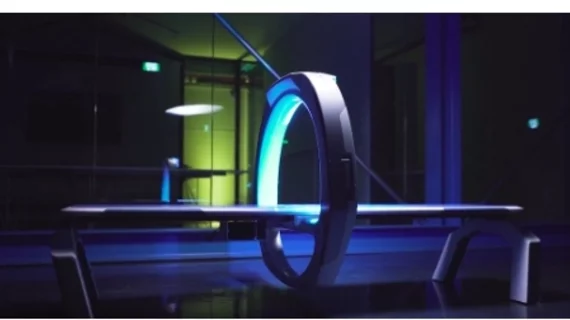Nanox signs deal with Ambra Health enabling image exchange capabilities with providers
Healthcare disrupter Nanox has signed a deal with Ambra Health establishing image exchange and access capabilities for its novel x-ray system, the pair announced on Thursday.
According to the deal, the companies will integrate Ambra’s enterprise image exchange solution with Nanox.ARC systems as they are deployed via the startup’s cloud network. The agreement is subject to U.S. Food and Drug Administration approval of the Nanox.ARC system.
"It is our intent to provide seamless image exchange once our systems are approved by the FDA and we commence deployments,” Founder and CEO of the Israeli firm Ran Poliakine, said in a statement. “By working with Ambra, we can directly connect our modalities at hospitals with imaging providers with minimal integration effort and a high level of data privacy.”
New York-based Ambra said it’s currently managing more than 8 billion images, with seven of the top 10 hospitals in the U.S. utilizing its network. As part of their new deal, such providers will now have access to Nanox imaging solutions.
“Digital health companies like Ambra Health and Nanox are on a mission to streamline the image management process so that critical medical imaging data is available when and where providers need it,” Andrew Duckworth, VP of business development at Ambra, said Thursday.
Nanox has faced a number of negative claims in recent months, including a class action lawsuit alleging it has misled investors.
The startup announced a $119 million deal in September with distributor SPI Medical to deploy 630 of its Nanox.ARC scanners in Mexico. And in March, the startup inked a $174 million contract with the Gateway Group to distribute 1,000 of its x-ray systems across Australia, New Zealand and Norway.

